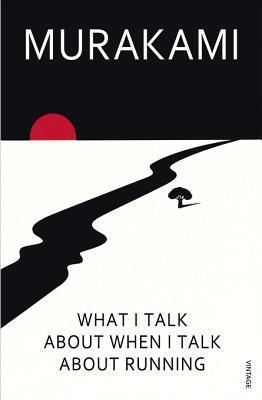
What I Talk About When I Talk About Running
‘Pain is inevitable, suffering is optional’ A compelling mediation on the power of running and a fascinating insight into the life of this internationally bestselling writer. In 1982, having sold his jazz bar to devote himself to writing, Murakami began running to keep fit. A year later, he'd completed a solo course from Athens to Marathon, and now, after dozens of such races, he reflects upon the influence the sport has had on his life and on his writing. Equal parts travelogue, training log and reminiscence, this revealing memoir covers his four-month preparation for the 2005 New York City Marathon and settings ranging from Tokyo's Jingu Gaien gardens, where he once shared the course with an Olympian, to the Charles River in Boston. By turns funny and sobering, playful and philosophical, this is a must-read for fans of this masterful yet private writer as well as for the exploding population of athletes who find similar satisfaction in distance running. 'There can never have been a book quite like this memoir of running and writing before. In its self-contained way, it's nothing less than an inspiration' Evening Standard 'Hugely enjoyable...You don't have to have run a marathon to be captivated' Sunday Telegraph 'Comical, charming and philosophical...an excellent memoir' GQ
Reviews
Owen Kasparian@owenksprn
Finn James@finnmemorial
mimi nguyen@nakedguacamole
Cassandra Tang@tangaroo
gracie@okaygracie
Pratik M@pcmhatre
Rutik @hellorutik
Patrick Arminio@patrickpy
Jacob Hopkins@jhopkins
amelo@amelo
Jb@jbr1992
Farah Aisha Shabrina@farahaisha
Cece Page@cecebookpage
jess@visceralreverie
Haritlak Thawikasikam@haritread
Laura Mauler@blueskygreenstrees
Bilge Ince@bilge
g.m.@genie_m
Klára Kováčiková @kayyaa
Lauri@lxurinkx
Thomas DeCelle@tdecelle
tanima@tanima
nahomi@nahomi
Quentin Gibeau@xmas_gonna
Highlights
aywen@aywen
aywen@aywen
Cassandra Tang@tangaroo
Cassandra Tang@tangaroo
Cassandra Tang@tangaroo
Cassandra Tang@tangaroo
Cassandra Tang@tangaroo
Cassandra Tang@tangaroo
Rutik @hellorutik
Rutik @hellorutik
Rutik @hellorutik
Rutik @hellorutik
Rutik @hellorutik
Rutik @hellorutik
Rutik @hellorutik
Alp@alp
nahomi@nahomi
nahomi@nahomi
greta@notgabriela
Page 45
Sven Schmidt@sven
Page 171
Sven Schmidt@sven
Page 161
Sven Schmidt@sven
Page 120
Sven Schmidt@sven
Page 110
Sven Schmidt@sven
Page 98